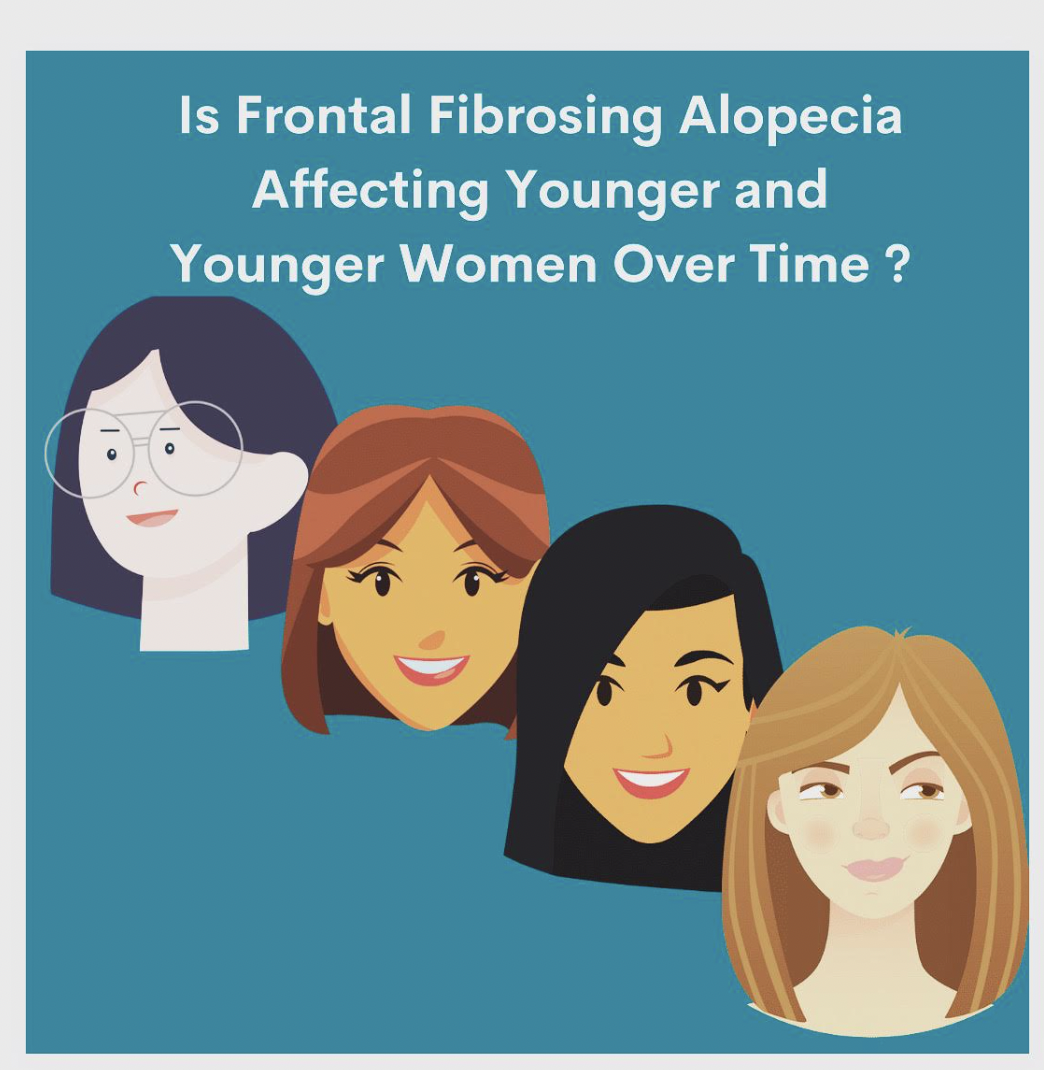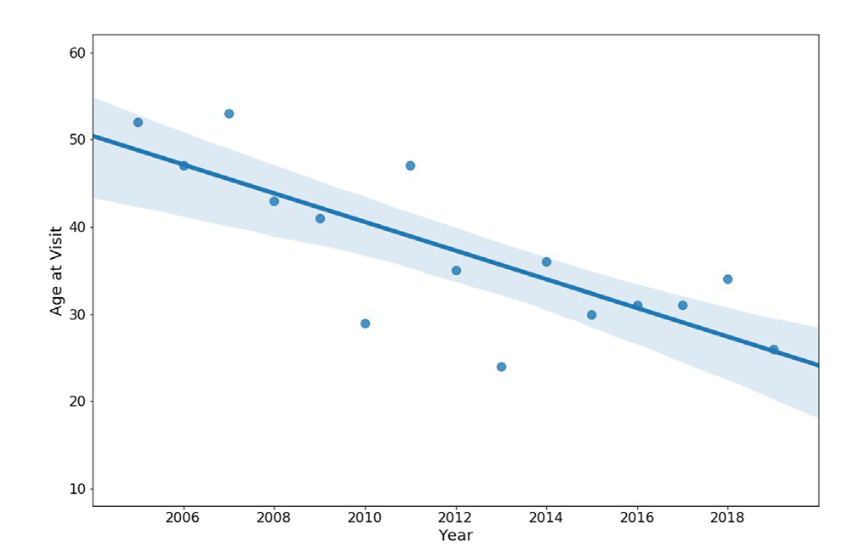Is FFA happening to younger and younger women?
The age of onset of FFA may be decreasing
Frontal fibrosing alopecia is a scarring alopecia that is increasing worldwide. Some have referred to the increasing rates as an epidemic. It has been proposed that not only are rates of FFA increasing, but the age of women at the time of diagnosis may be decreasing.
Rosales Santillan et al. 2022
Authors of a new study set out to evaluate whether women presenting to clinic with a new diagnosis of FFA are in fact younger than they were years ago. With ethics approval, a retrospective review of patients seen in the Hair Clinic at Boston Medical Center was undertaken to further investigate the age at which patients were presenting with FFA.
Patients diagnosed with FFA from 2005 to 2019 were tabulated, and patient data from 2012 to 2019 were reviewed including patient sex, age at time of initial visit, and estimated age at disease onset.
Data was available on 292 patients. 96.6 % were female. Age at time of visit ranged from 24 to 84 years, and estimated age of disease onset ranged from 17 to 81 years. Both decreased over time, but neither achieved statistical significance. However, the age of the youngest patient presenting annually significantly decreased over time.
Data from a new study suggests that the youngest patient each year seen in clinic is decreasing over time. From Rosales Santillan M et al. Exploring potential decreasing age of patients with frontal fibrosing alopecia. JAAD Int. 2022 Jul 22;9:28-29. Used with creative commons license.
Comment
This is an interesting study which suggests that FFA may be affecting younger and younger women over time. The epidemic of FFA is not only causing more women to be affected but may also be slowly causing more young women to be affected. The authors showed that younger and younger women are showing up in clinic not just because people are accessing care more and more quickly nowadays but rather than it seems to be a true effect.
The big question is why is FFA occurring in the first place? If there is some kind of environmental trigger - why is it that younger women are coming to be more often exposed to such a trigger than they were in the past?
The second question is do we need to pursue any different kind of work up given that the risk of early menopause appears to be increased in women with FFA. If the age of diagnosis is decreasing over time, there are going to be more and more women with FFA before they have completed their families.
REFERENCE
Rosales Santillan M et al. Exploring potential decreasing age of patients with frontal fibrosing alopecia. JAAD Int. 2022 Jul 22;9:28-29.
This article was written by Dr. Jeff Donovan, a Canadian and US board certified dermatologist specializing exclusively in hair loss.



